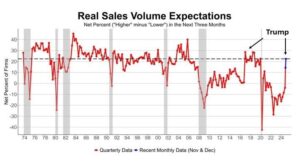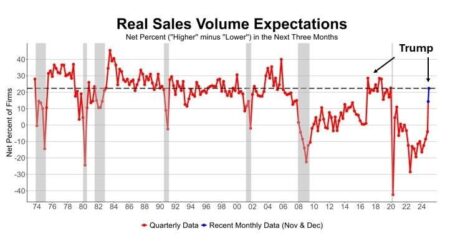Muhammed Uzum is a founding attorney at Grape Law Firm.
The U.S. has long been a destination for people pursuing their professional dreams outside the borders of their home countries.
Immigrants to the U.S. are around 80% more likely to start a business than U.S.-born citizens, making up 21.5% of self-employed workers and 24.2% of new business owners. Nearly half of all Fortune 500 companies (46%) were founded by immigrants or their children. Immigrants have created 55% of the “unicorns” in the U.S.—startups that have been valued at $1 billion or more—and almost 80% of unicorns have a founder or key leader who is an immigrant. The proportion of foreign-born workers in high-skill occupations is also on the rise, increasing from 20% in 1995 to 25% in 2018.
But while immigrant entrepreneurs want to dedicate most of their energy toward building and growing their businesses, they must also make sure they have the appropriate work authorizations in place for themselves and their employees. This is a fundamental component of doing business in the U.S. as an immigrant founder. If you and your team want to work and stay in the U.S., you first need to obtain the right visas—which is a complex and often confusing process.
Immigration policy is also constantly evolving. It was a central issue during President Trump’s first term, and it’s likely to continue to be a focus area in his second term. My law firm specializes in immigration law, and these are the trends, challenges and opportunities that I believe startup founders should be thinking about in 2025. With the right strategy and timing, bringing your business to the U.S. is still an achievable goal.
A Cautiously Optimistic Outlook
While immigration remains a contentious issue in the U.S., there is reason for optimism around employment-based immigration.
Under the Biden administration, the Departments of State and Homeland Security advanced actions to streamline legal immigration pathways for foreign workers, students, researchers and experts in STEM fields and highly skilled occupations. Tech leaders who are pushing for the Trump administration to expand the number of visas granted to highly skilled workers now have a powerful ally in Elon Musk, Tesla CEO and head of a new “Department of Government Efficiency.” Musk has petitioned for improvements in legal immigration processes so that “super talented people” can come to the U.S. more easily.
Visa Options For Startup Founders
The U.S. doesn’t offer a specific startup visa, but founders do have several visa options to immigrate to the U.S.
O-1 Visa
The O-1 visa is the most popular option for founders, especially those with early-stage startups. The O-1 visa is designed for individuals with “extraordinary ability or achievement” in their field. To be eligible for the O-1 visa, you must show that you meet at least three out of the six to eight requirements, including serving in a critical position, making significant contributions to the field, publishing in major trade or media publications or receiving high compensation.
The criteria for the O-1 visa are rigorous, so they can be difficult to meet for founders who are just starting out. But if you have already demonstrated early success in your home country, the O-1 visa is often the ideal route to entering the U.S.
L-1 Visa
For more established companies, the L-1 visa is an attractive alternative to the O-1. This
“intracompany transferee” visa allows multinational companies to bring executives, managers or specialized employees from their offices abroad to work in the U.S. Since the L-1 requires a founder to have an existing company outside the U.S., this visa can be a viable option for scale-ups, rather than early-stage startups.
H-1B Visa
The H-1B visa is primarily geared toward workers with specialized skills who have job offers from U.S. companies—but it can also apply to startup founders and their employees. The number of new H-1B visas issued each year is capped at 85,000, 20,000 of which are reserved for higher education graduates from U.S. institutions. Demand for the H-1B visa is high, but it is a good choice if you are a startup founder who has not yet reached the level of achievement needed to qualify for the O-1 visa.
My firm has worked with founders of companies from a wide range of industries and development stages, and there is no one-size-fits-all approach to the visa process. Every entrepreneur’s story and needs are unique.
The most important action you can take as a founder is to understand and plan for immigration requirements before you begin business operations. It’s easy to get so focused on building your company, product and team that you overlook the critical details of work authorizations—but this misstep can lead to serious complications. Even seemingly minor involvement in day-to-day operations without proper authorization can have long-term consequences for your future visa applications.
I advise business leaders to consult with an immigration lawyer before taking any steps to start a business in the U.S. With careful planning, you can understand your options and obtain the right visa for your specific needs. Once that key piece of the puzzle is in place, you can concentrate on what matters most: growing your company in one of the world’s most dynamic markets.
Forbes Business Council is the foremost growth and networking organization for business owners and leaders. Do I qualify?
Read the full article here











